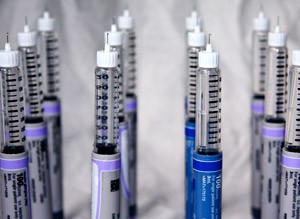Country reacts to research performed by Cologne laboratory
 The risk of accidental clenbuterol contamination from eating Chinese beef is minimal, so says Zhao Jian, the head of the Chinese Anti-Doping Agency (CHINADA), according to De Standaard. Zhao was speaking in response to a study performed by the Cologne anti-doping laboratory, which found that 22 out of 28 tourists, recently returned from China, tested positive for the substance.
The risk of accidental clenbuterol contamination from eating Chinese beef is minimal, so says Zhao Jian, the head of the Chinese Anti-Doping Agency (CHINADA), according to De Standaard. Zhao was speaking in response to a study performed by the Cologne anti-doping laboratory, which found that 22 out of 28 tourists, recently returned from China, tested positive for the substance.
The laboratory concluded that there was a high chance of ingesting the substance and therefore recommended against eating meat produced in the country; it also declared that there was a similar risk from meat from Mexico.
“The Europeans overreact,” Zhao told the Chinese media. “The risk of a positive test is minimal.”
According to CHINADA, the Chinese authorities keep a close eye on the quality of foods that are consumed by athletes. “There is nothing to worry about,” said Zhao.
In August last year German table tennis player Dimitry Ovtcharov tested positive for clenbuterol on his return from the Chinese Open. He escaped sanction though, when he was able to establish that he ingested the substance through contaminated veal.
The presence, or otherwise, of clenbuterol in Chinese meat has no bearing in the highest profile current case involving the substance, that of Tour de France winner Alberto Contador, since the Spaniard has laid the blame on beef from his own country. It could however, be a factor in the case of former Chinese RadioShack rider Li Fuyu, who may have ingested the substance while at home.
Of even more concern though is the prospect of a potential mass-contamination of the peloton as it travels to China to race. The women’s peloton travels to China in May for the World Cup race and Tour of Chongming Island, while the men are due to go there in October for the new Tour of Beijing WorldTour race.